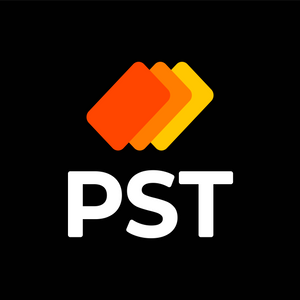CPA (Cost Per Action) and RevShare (Revenue Share) are two different revenue models used in affiliate marketing.
CPA is a revenue model where an affiliate receives a fixed amount of money for each action a user takes after clicking on their affiliate link. These actions could be anything from making a purchase, filling out a form, signing up for a free trial, or completing any other predetermined action. Affiliates are paid a fixed commission for each successful action, regardless of the total revenue generated by the action.
RevShare, on the other hand, is a revenue model where an affiliate receives a percentage of the revenue generated by the user after clicking on their affiliate link. Commission percentage can vary depending on the product or service being promoted and the agreement between the affiliate and the merchant. Unlike CPA, an affiliate's commission in RevShare is based on the total revenue generated by the user, and not a fixed amount per action.
There are pros and cons for each of the mentioned models, let’s look at them more precisely to define which one may work better for certain types of affiliates.
First, let's look at CPA.
Pros of CPA:
- Predictable earnings: With CPA, you know exactly how much you will earn for each action taken by the user, so it's easier to predict your earnings.
- High payouts: In some cases, CPA payouts can be higher than RevShare commissions, especially for high-priced products or services.
- Lower risk: Since you are paid a fixed amount per action, there is less risk involved than with RevShare, where your earnings depend on the revenue generated by the user.
Cons of CPA:
- Limited earning potential: With CPA, your earnings are limited to the fixed commission per action, so if the user doesn't take any more actions after the first touch, you won't earn any more money.
- Lower conversions: Most users may be hesitant to take action if they have to pay for something upfront or provide personal information, which can lead to lower conversion rates for CPA offers.
- Short-term revenue: Since you only earn money for each action taken, the revenue you earn from CPA offers is usually short-term.
Now let's look at RevShare.
Pros of RevShare:
- High earning potential: With RevShare, your earnings are based on the revenue generated by the user, so there is no limit to how much you can earn from each user.
- Long-term revenue: RevShare offers can provide ongoing revenue if the user continues to generate revenue for the merchant.
- Motivation for merchants to optimize conversions: Since the merchant is sharing revenue with the affiliate, they both have a motivation to optimize conversions and improve the user experience to generate more revenue.
Cons of RevShare:
- Unpredictable earnings: Since your commission is based on the revenue generated by the user, your earnings can vary greatly depending on the user's behavior and the success of the merchant's marketing efforts.
- High risk: Since your earnings are tied to the revenue generated by the user, if the user doesn't generate any revenue, you won't earn anything.
- Longer payout time frame: RevShare payouts are often delayed compared to CPA payouts, since the merchant needs time to calculate the revenue generated by the user.
Which revenue model is better for you depends on several factors, such as a product or service being promoted, a target audience, and a type of affiliate you are.
CPA may be better suited for affiliates who are just starting out and don't have a large audience yet, since it offers predictable earnings and lower risk. CPA may also work well for affiliates promoting low-priced products or services, since fixed commission per action can still provide a decent payout, but much easier to promote.
RevShare may be better suited for affiliates who have a large audience and can generate a lot of revenue for the merchant, since it offers a higher earning potential. RevShare may also work well for affiliates promoting high-priced products or services, since the commission percentage can provide a significant payout.
Some services use both models to pay their affiliates and one of them is PST.NET. For this one you don't have to choose between CPA or RevShare, as the PST.NET affiliate program offers the best of both worlds. You can earn up to $250 in CPA + RevShare for a review, up to $50 in CPA for a meaningful comment, and unlimited income from the referral link.
To get started, all you need to do is sign up for PST.NET and get your referral link. Write an article, make a video review (or even make a song!) about PST.NET on your website or personal blog, and place your affiliate link to earn up to $250 in flat fees and additional RevShare payouts. You can also earn up to $50 in flat fees by writing a meaningful comment on any affiliate or dropshipping related forum, chat, or media platform. Of course, you need to have a reputable profile to join this feedback program.
In conclusion, both CPA and RevShare have their pros and cons, and which one is better for you depends on several factors. It's important to consider the product or service being promoted, your target audience, and your affiliate method before deciding which revenue model to use.

